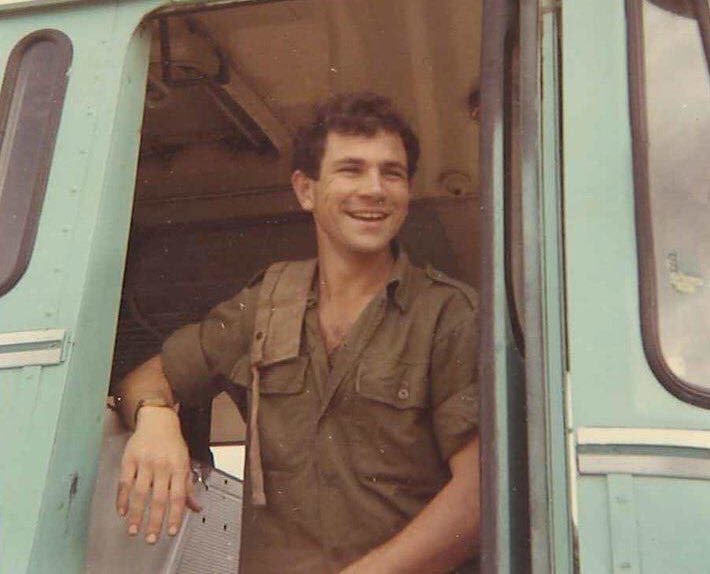
“If we do not do this for ourselves, no one will do it for us.”
Throughout our years of Jewish education and Israeli history, we have been taught that May 14th marks the beginning of a new chapter for the Jewish people. It is a day on which the obligation to live in the Diaspora ends, and an opportunity to return to our ancestral homeland arose. While this might have been the day in which these principles were established, it would take nearly two decades later for them to be demonstrated.
As we commemorate the 42nd anniversary of “Operation Thunderbolt,” the daring rescue by Israeli commandos of the 102 hostages held at the Entebbe International Airport in Uganda, it is time to acknowledge the repercussions of this historic military mission.
Historians have noted that the mission was not just used to send a message to our hostile neighbors or to deter more terror plots by the Palestinian Liberation Organization. The mission, which occurred nearly 30 years after the horrors of the Holocaust, also set out to establish a firm commitment between Jews in the Diaspora and the State of Israel, which was not to be bounded by politics or conveniences. What better way to prove this than to cross an entire continent under enemy radar and bring nearly all the Jewish hostages back to Israel safely?
I often think of the meaning of this event because of the role it played in my own life. It was an event of Israeli history that my father never forgot.
My father was only 12 years old when he made aliyah, along with his younger brother and mother in July of 1976. As my family made it into the absorption center of Netanya later that afternoon, they heard the announcement that Lt. Col. Yonatan (“Yoni”) Netanyahu, commander of Sayeret Matkal (the special commando unit responsible for carrying out the operation) and the architect of the rescue operation itself, had succumbed to his wounds on the plane. It was that same day when my father chose that name for me.
I still remember my sixth birthday in Buenos Aires, Argentina. My mom and baby sister were sleeping, and my dad quietly woke me up and brought me in front of our small TV in the living room. He put on Israeli singer Yoram Gaon’s “Operation Yonatan” (the name later given to “Operation Thunderbolt”) and asked me not to tell my mother the next day. My eyes lit up after seeing the Israel Defense Forces uniforms and the freed hostages dancing near film’s end, happy to be home with their loved ones. Before I went to sleep, my dad explained where my name came from and despite my Hebrew being shaky, I recalled one sentence that Yoni stated to the soldiers before they boarded the Hercules plane:
“If we do not do this for ourselves, no one will do it for us.”

On that day, I told my parents that I would join the IDF. As the proud Zionist that he is, he smiled and sent me to bed. He underestimated my memory. Years later, in 2014, I joined the paratroopers in the IDF, fulfilling my promise.
Towards the end of my service, when I had lost a friend to a terror attack in the Beersheva bus station, I began to pay more attention to the coverage of international media on the conflict in Israel. While the bias coverage of many outlets did not surprise me, I was shocked to learn about the defamation of Israel perpetrated by those in the Jewish community itself.
The relationship I had envisioned between the Jewish state and the international Jewish community ideally consisted of unequivocal support for Israel on behalf of the Jewish community. This support, plausibly, would consist of using the Jewish identity to advocate for the growth and prosperity of Israel, but this is not always the case. It startled me that groups such as Jewish Voice for Peace and IfNotNow were purposely using their Jewish identity to intentionally defame Israel or to assume a fabricated ethos that they have an entitlement in dictating Israel’s security concerns.
And yet, despite efforts among Jews themselves to isolate Israel through endorsing the BDS movements or the will to object to programs promoting Jewish values through Zionism, Israel continues to uphold its end of the bargain. I saw this myself during my service. The same Jews that came to protest us in the West Bank received security and medical assistance from us when Palestinian violence erupted. While we soldiers never cared for their politics or their misguided sense of entitlement in their demand to dictate Israeli policy, they were still kept safe by Israeli soldiers.
This is just one of the many examples of Israel demonstrating, time and time again, a profound and lasting commitment to Jews throughout the world, despite their views on Israel.
There is a genuine and troubling disconnect between Israel and significant sectors of the American Jewry. I would hope that while we remember today the incredible decision-making on behalf of the Israeli government back in July of 1976—to protect Jews inside and outside of Israel—that the Jewish community in the United States would begin to reflect on its side of the covenant.
Contributed by Campus Coordinator Yoni Michanie. This article was originally published in JNS.

